(32441 products available)



















































































































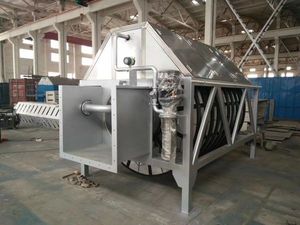
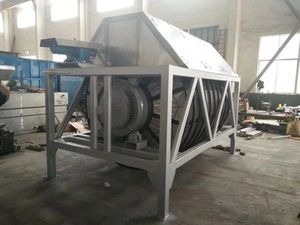
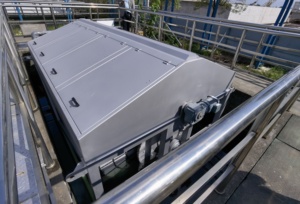
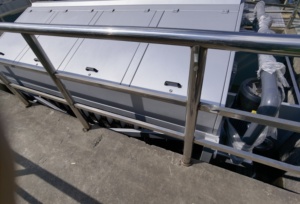












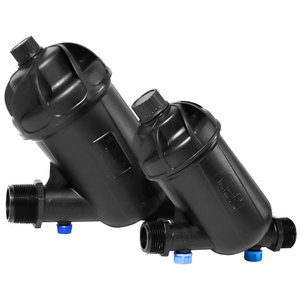





![TS <strong>Filter</strong> Supply [Lab Membrane] Nylon PVDF PTFE Etc Microfiltration Membrane <strong>Disc</strong> <strong>Filter</strong> 13/25/47/50/54/90/142/150/293/300mm](http://s.alicdn.com/@sc04/kf/H1403aa40234342dd8b2f2a417986ee72r.png_300x300.jpg)
![TS <strong>Filter</strong> Supply [Lab Membrane] Nylon PVDF PTFE Etc Microfiltration Membrane <strong>Disc</strong> <strong>Filter</strong> 13/25/47/50/54/90/142/150/293/300mm](http://s.alicdn.com/@sc04/kf/H9c38fe8a11e743df98345b90bf3537fby.jpg_300x300.jpg)
![TS <strong>Filter</strong> Supply [Lab Membrane] Nylon PVDF PTFE Etc Microfiltration Membrane <strong>Disc</strong> <strong>Filter</strong> 13/25/47/50/54/90/142/150/293/300mm](http://s.alicdn.com/@sc04/kf/H6723fbefda97441cb1a0b1ba04737464Q.jpg_300x300.jpg)
![TS <strong>Filter</strong> Supply [Lab Membrane] Nylon PVDF PTFE Etc Microfiltration Membrane <strong>Disc</strong> <strong>Filter</strong> 13/25/47/50/54/90/142/150/293/300mm](http://s.alicdn.com/@sc04/kf/H4dfddb99996c4de3a816b5bb0f941038g.jpg_300x300.jpg)
![TS <strong>Filter</strong> Supply [Lab Membrane] Nylon PVDF PTFE Etc Microfiltration Membrane <strong>Disc</strong> <strong>Filter</strong> 13/25/47/50/54/90/142/150/293/300mm](http://s.alicdn.com/@sc04/kf/H272660ad3b5547d1b9d4a45a58f0db90b.jpg_300x300.jpg)
![TS <strong>Filter</strong> Supply [Lab Membrane] Nylon PVDF PTFE Etc Microfiltration Membrane <strong>Disc</strong> <strong>Filter</strong> 13/25/47/50/54/90/142/150/293/300mm](http://s.alicdn.com/@sc04/kf/H8d5ad01cca1d4288b59286fd30d86cbdt.png_300x300.jpg)







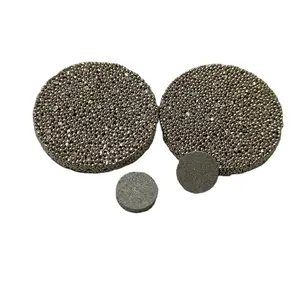














A disc filter is made of multiple discs stacked together, each having a perforated structure. It is a porous filter that can filter out unwanted materials and impurities in different liquids and gases. Depending on the application, disc filters have different materials and structures. There are several common types of disc filters.
Stainless steel disc filter
The stainless steel disc filter is mainly used for filtering gasoline and oil. Stainless steel is used as the main material for making the filter because it is very heat resistant and corrosion resistant. So it is suitable for filtering high-temperature and corrosive liquids. In addition, the stainless steel disc filter can be cleaned and reused, making it an economical and practical option for long-term use.
Ceramic disc filter
The ceramic disc filter is mainly used for filtering chemicals and pharmaceutical applications. Because ceramics have good chemical stability and biocompatibility, they are suitable for applications in the chemical and pharmaceutical industries. The ceramic disc filter can effectively remove impurities in the chemicals and medicines, ensuring the purity and quality of the products.
Plastic disc filter
The plastic disc filter is mainly used in water treatment and agricultural irrigation systems. This type of disc filter is usually made of materials such as polypropylene or polyethylene, which have good corrosion resistance and impact resistance. Plastic disc filters are lightweight and easy to install, making them ideal for water treatment and irrigation systems.
Glass fiber disc filter
The glass fiber disc filter is mainly used in the food and beverage industry. Glass fiber has good filtration performance and can withstand high temperatures and pressures. Therefore, glass fiber disc filters are often used in the filtration of juices, soft drinks, and other beverages to ensure product safety and quality.
Bronze disc filter
The bronze disc filter is mainly used in marine and offshore applications. The bronze material has excellent corrosion resistance and mechanical strength, suitable for harsh environments in the ocean. Bronze disc filters are usually used for filtering seawater, marine fuels, and lubricants to protect equipment and pipelines from damage by impurities.
Material Selection:
The materials used in making disc filters must be able to resist corrosion. This is because, in many cases, the filters are used in seawater applications and in industries where the chemicals used can be corrosive. Therefore, the materials selected can either be stainless steel, plastic, or bronze. For example, the discs themselves often employ materials like polyester, polypropylene, or stainless steel, which are chosen for their durability and resistance to chemicals and corrosion. The end caps and housing can be made from similar materials to ensure compatibility with the filtered fluid.
Disc Configuration:
When making disc filters, the discs are designed and configured even before the material is selected. During the design, the size of the discs and the pore size is determined, which will be suitable for the type of filtering that will be done. The pores on the discs are made in a way that allows for easy passage of the liquid while ensuring that all the solid materials and impurities are trapped within the discs. The configuration of the discs is done in such a way that it allows for easy replacement and cleaning, which enhances the longevity of the filter.
Flow Distribution:
For proper functionality of the disc filter, the flow of the liquid to be filtered must be evenly distributed. The design must be such that the liquid flows into the filter system and passes through all the discs. This is to ensure that all the impurities are removed, and the filtration process is effective. Uneven flow distribution may lead to the quick clogging of some discs while others remain clean. This will make the filter less effective and reduce its lifespan.
Modular Design:
Most disc filters have a modular design, which allows for easy expansion and customization. This is important because different industries have different filtering requirements, which may change over time. Therefore, a modular design will enable the addition of more filter discs or the use of larger housing without requiring a complete redesign of the filtration system.
Ease of Maintenance:
During the design of disc filters, the ease of maintenance is also considered. This is important because, without easy maintenance, the filter may fail to work properly or become damaged over time. Therefore, the design must allow for easy cleaning of the discs, easy replacement of clogged discs, and easy access to the filter system for routine inspection. If the filter is easy to maintain, it will have a longer lifespan and be more cost-effective in the long run.
Pressure Rating:
The design must be able to withstand the maximum pressure that the filter will be subjected to during use. This is important because, without a proper pressure rating, the filter can burst or leak, leading to contamination of the filtered liquid and possible damage to the surrounding equipment. A reliable disc filter design includes pressure ratings that match or exceed the expected operating pressures.
Water Treatment Facilities:
Municipal water treatment facilities utilize disc filters to clean water. The disc filters get rid of dirt and particles from the water. This provides clean drinking water to the community.
Irrigation Systems:
Farmers use disc filters in irrigation systems. The filters take out debris and prevent blockage in the irrigation lines. This ensures that crops get a steady flow of water for farming.
Industrial Processes:
Factories use disc filters in various processes. The filters clean liquids used to make products. They also filter out impurities from waste liquids before disposal. This is important for product quality and environmental protection.
Aquaculture:
Fish farms use disc filters to maintain water quality. The filters remove particles from the water in the fish tanks. This provides a clean and healthy environment for the fish to grow.
Cooling Towers:
In power plants and large buildings, cooling towers are used to remove heat. Disc filters are used to filter water in cooling towers. The filters eliminate debris that could damage the cooling system. This helps the cooling system work efficiently.
Rainwater Harvesting Systems:
As more people focus on saving water, rainwater harvesting becomes popular. Disc filters are used to clean rainwater in these systems. The filters remove leaves and dirt from the collected rainwater. This provides clean water for non-drinking uses like watering gardens.
Reverse Osmosis Systems:
Many homes and businesses use reverse osmosis (RO) for water purification. Before water enters the RO unit, disc filters are used to take out big particles. This protects the RO membrane and extends its life.
Hydroponic Systems:
In hydroponics, plants are grown without soil in a nutrient-rich water solution. Disc filters clean the water in hydroponic systems. This removes particles that could harm plant roots.
For business buyers, choosing the right disc filter involves a careful assessment of various factors to ensure that the filter meets the specific operational requirements. Here are some key points to consider when selecting a disc filter:
Clearly define the filtration requirements:
Determine the specific filtration requirements, such as the type of particles to be removed, the desired effluent quality, and the flow rates. Consider factors like the size and concentration of suspended solids, the acceptable level of turbidity, and any regulatory requirements for effluent quality.
Consider the filter aperture size:
Choose a disc filter with an aperture size that can effectively remove the desired particles while allowing the desired flow of water or fluid. Smaller aperture sizes are suitable for removing fine sediments, while larger apertures may be appropriate for coarser filtration.
Evaluate the filter material and construction:
Select disc filters manufactured from durable materials that can withstand the specific operating conditions. Consider factors such as corrosion resistance, chemical compatibility, and the ability to handle variations in temperature and pressure.
Assess the cleaning and maintenance:
Consider the cleaning and maintenance requirements of the disc filter. Look for filters that offer easy maintenance, such as automated backwashing or simple manual cleaning procedures. This will help reduce downtime and maintenance costs, ensuring the filter operates effectively over its lifespan.
Examine the flow rate and pressure drop:
Check the flow rate capacity of the disc filter to ensure it can handle the required water or fluid flow. Also, consider the pressure drop across the filter at the desired flow rate. Select a filter with an acceptable pressure drop to avoid excessive energy consumption and ensure the efficient operation of the system.
Review the manufacturer's reputation and support:
Choose disc filter manufacturers with good reputation and reliability. Also, consider the warranty offered by the manufacturer. A longer warranty period indicates the manufacturer's confidence in the product's quality and performance.
Q1: What are the benefits of using disc filters?
A1: The advantages of using disc filters include compact design, high filtration efficiency, easy maintenance, and versatility for various applications.
Q2: How does backwashing work in disc filter maintenance?
A2: Backwashing is a process wherein clean water is sent through the filter in the opposite direction to dislodge and remove trapped particles, thus cleaning the filter media.
Q3: What industries commonly use disc filters?
A3: Disc filters are widely used in sectors such as agriculture for irrigation, aquaculture, mining, and industrial processes.
Q4: What are the key factors to consider when selecting a disc filter?
A4: Some important factors to consider include the filtration rating, flow capacity, compatibility with fluids, and materials of construction.
Q5: Can disc filters remove small particles effectively?
A5: Yes, disc filters can effectively remove small particles depending on the mesh size or filtration rating used.